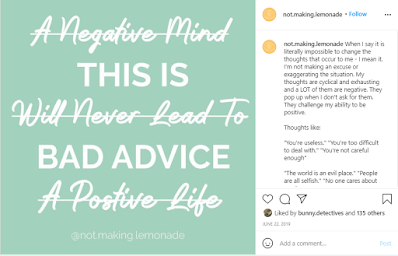Future Vision Learner Considerations
I feel that in "narrowing down" to AR and ARGs, I have still set the scope of my digital artifact project too wide. I’d really like to use augmented reality (AR) to enhance the students’ use of the library. Going back to my first blog post about how to support a culture of readership and evaluating the needs of the students in my school will lead me in narrowing my direction for this project.
I’ve
lived in multiple cities in multiple countries, but in the rural area I teach
in now, the culture is more anti-intellectual than any other place I’ve experienced.
Not only are the people uneducated, but they discourage others from accessing
or embracing education as well. Students entering kindergarten in this culture
are not prepared for school or learning, so they start already behind their
counterparts in other areas of the province. Unlike where I grew up, students
that go to university are the exception rather than the rule. Some of them do go
onto post-secondary trades or vocational schools, but for the vast majority,
Grade-12 graduation is the only grad ceremony they will experience. I don’t
mean to disparage my school or its social environment, but rather explain it in
plain terms that someone from outside this culture can understand. I myself had
heard of low-academic schools, but I’d never seen it first-hand until I moved
here. It’s proof that culture shock isn’t limited to international travel. It’s
proof that a person’s environment determines their opportunities. And it’s proof
to me that education is not a given, but a valuable privilege.
In
Learning Strategies and Humanities 8-9 Resource classes, I’ve worked with many kids
far below grade level in reading and other basic school skills. The number of
students who go through “Reading Recovery” in
primary school and still can’t read at grade level in secondary school is upsetting.
And yet, research into best practices still tells us that the number one
determiner of lifelong learning is reading. Students who read recreationally do
better in all aspects of academics (Anderer;
Fuglei) Reading fiction leads to better empathy skills, building theory
of mind and improving social cognition. (Hammond). And reading improves vocabulary and critical
thinking skills (Harward). So the greatest gift educators could give
these students is a love of reading.
I’d
like to use AR to enrich these students’ experiences in the library. For
students who are still so busy decoding text that they can’t focus on comprehending
it, a place that is so text-rich may be overwhelming and intimidating. And if
they can’t see themselves as readers, they may not respond to simple physical
proximity. One thing that educators have focused on is using graphic novels as access
points to literature for slow readers. Perhaps some sort of AR project might
make new access points.
Other libraries are using AR to enhance their processing and shelving (Ko-Chiu Wu) (Spina), independent orientation and book-finding (Spina), displaying metadata to users scanning individual books (UiO Realfagsbiblioteket), and adding animations or other interactives to individual books (TPL Teens).
x
As
much as I’d like to go further down the ARG (alternative reality game)
rabbithole, I think it would be better for me (and my potential users) to start
with something like the metadata AR. I have even dreamed of what it might be
like to have a “guestbook” of sorts attached to the books, so that students
could rate works, leave reviews, and interact with other readers. I understand
that like all social media platforms, it would need a lot of moderation to prevent
cyber-bullying, but I want to imagine an ideal version first, and then worry
about how to make it work.
Bibliography
Anderer, John. "Children Who
Regularly Read for Pleasure Perform Better in School, Study Finds." (2020). Web. 2021.
Fuglei, Monica. "Why Students Who
Read for Pleasure Are Stronger Academically | Resilient Educator." (2013). Web. 2021.
Hammond, Claudia. "Does Reading
Fiction Make Us Better People?"
(2019). Web.
Harward, Samantha. "Want to Become
Better at Critical Thinking? Read Books. - College Magazine." (2019). Print.
Ko-Chiu Wu, Chung-Ching Liu, Tzu-Heng
Chiu, & Chun-Ching Chen. "Augmented Reality Navigation App and Metadata
Icon Design for Children’s Library."
(2019). Web. 2021.
Realfagsbiblioteket, UiO.Augmented Reality with Wayfinding and
Metadata in the Library. YouTube, 2019.
Spina, Carli. "Keeping up With...
Augmented Reality." Keeping Up
With... February 2014 (2014). Web. 2021.
Teens,
TPL.Tpl:Ar Augmented Reality App.
YouTube, 2019.

Hello,
ReplyDeleteI have a very limited experience with and understanding of AR. This sounds really cool for a secondary setting! I hope it is not too labor intensive for you and I can't wait to see it!
A good revist of your goals, and some important context for your community and audience. Making your collection, program and space more accessible and engaging, even with reluctant readers is a great challenge to take on, and using new tools and formats like AR can bring in some of those reluctant and resistant readers with some alternative ways to access and understand. Overall, some interesting big ideas and very cool examples, and am interested to see how these ideas manifest in your space, and program.
ReplyDelete